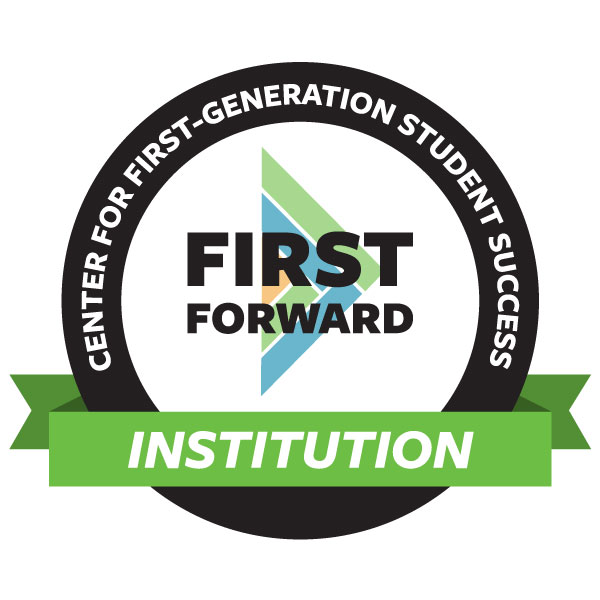Last call to participate in Purdue’s inaugural first-generation student symposium on Jan. 30

There is still time for Purdue staff and faculty to register for the inaugural First-Generation Student Symposium, which takes place from 8:30 a.m. to 12:30 p.m. on Thursday, Jan. 30 in Fowler Hall, Stewart Center.
The event is co-hosted by Purdue’s Division of Diversity and Inclusion, Student Success Programs, and the College of Liberal Arts. Participants will have the opportunity to share input on the development of inclusive and equitable policies and practices for first-generation students at Purdue.
Keynote speaker Sarah E. Whitley says first-generation students are best served when there is an institutional focus on helping them develop a sense of belonging, as opposed to disjointed programmatic initiatives. Whitley serves as senior director of the Center for First-generation Student Success, which is part of NASPA, a professional organization for student affairs administrators in higher education.
“First-gen work often is relegated to student affairs professionals, but this is a Purdue-wide effort,” Whitley says. “Anyone interested in removing barriers to first-generation student success, or in exploring their own first-generation identity, is welcome to engage. We need everyone – staff, faculty, and students – to be in the room and be part of the conversation so we can take a broad, comprehensive look at how to serve unique populations and remove barriers to their success.”
The symposium will highlight the strengths associated with first-generation students and provide a snapshot of the data surrounding first-generation student success, as well as best practices.
Sometimes, Whitley says, even a simple word change can have a big impact.
“At Wichita State University, for example, faculty piloted changing the syllabus term “office hours” to “student hours,” and faculty saw a dramatic uptick in turnout because the students better understood it as a time when they could come and get support,” Whitley says. “Part of what we hope to do is help people realize that we’re not talking about shortcomings of student character; we’re talking about specific barriers to success that exist due to higher education systems and bureaucracies.”
In the spring of 2019, Purdue was selected to participate in the inaugural First Forward cohort, a designation that recognizes institutions with a proven commitment to advancing first-generation student outcomes.
Purdue programs such as Purdue Promise and Horizons have a specific focus on Purdue’s first-generation student population. However, Dennis Bowling, senior associate director of Student Success Programs, says there is an opportunity for various campus leaders and units to come together and make a broader impact.
Bowling is co-representing Purdue in the First Forward initiative alongside Joel Ebarb, senior associate dean for Undergraduate Education and International Programs in the College of Liberal Arts, and Lowell Kane, director of Purdue’s LGBTQ Center.
Ebarb says he’s excited for other Purdue community members to get involved.
“We’re sort of purposely a little vague about our plans because we want to see what the campus inspires or demands,” Ebarb says. “Our first-generation students are pretty successful, but Purdue is always looking for every possible metric to increase its excellence. When we compare success rates of Purdue’s first-generation students and success rates of their peers, there is enough separation that it’s meaningful, and we know there’s room for improvement.”
Kane says efforts surrounding first-generation students have some important intersections with the University’s Maximizing Student Potential (MSP) initiative, which stems from a larger body of work related to the Purdue Road Map for Transformative Undergraduate Education.
“There is a shared responsibility between students and the university to understand and act on student achievement data, and that’s what we’re doing with MSP,” says Kane, who is also involved in the first-generation project. “With MSP, we are building a tremendous database that looks at all students at Purdue within a 10-year window. Every data point we can collect will help us better understand the experiences and outcomes of all students, but we’ll also be able to look at population snapshots so we can talk about resourcing those populations on campus.”
Those who attend the Jan. 30 symposium will hear from a first-generation student panel, as well as remarks from John Gates, Purdue’s vice provost for diversity and inclusion.
Writer: Andrea Mattingly, Student Success Programs, 765-496-3754, andrea@purdue.edu
Last updated: Jan. 24, 2020
- Last call to participate in Purdue’s inaugural first-generation student symposium on Jan. 30
- More than 8,000 new Purdue students will participate in on-campus orientation programs
- Veterans Day salute to take place at Union
- Student Success Programs boost access to study abroad experiences
- Purdue staff member invited to serve on Indiana Veterans Affairs Commission
- Breaking Barriers: Brittany Mills' story of persistence and greatness in the field of biomechanics
- Over the weekend, campus will celebrate Horizons Student Support Services and the difference TRIO programs make at Purdue
- Purdue Horizons director selected by Indiana TRIO for Emerging Leaders Institute 2022 cohort
- Purdue changes academic regulations language to ‘academic notice’
- Purdue community invited to honor the fallen during Memorial Day observance
- New collaboration between Purdue University and United States Space Force will introduce high school students to careers in aviation and space
- Campus departments invited to host open houses during Boiler Gold Rush
- Purdue Testing Services
- Fleischer Scholars 2023 Inaugural Session
- A new kind of teaching assistant
- Grant proposals for experiential education programs due Oct. 13
- Academic Success Center offers Test Drive in Elliott Hall
- Purdue community invited to Nov. 10 space dedication and renaming ceremony for the Dorothy Stratton Veteran and Military Success Center
- Purdue celebrates first-generation college students during national First-Gen Week
- Purdue honors ‘trailblazer’ Dorothy Stratton during Veteran and Military Success Center renaming and dedication

